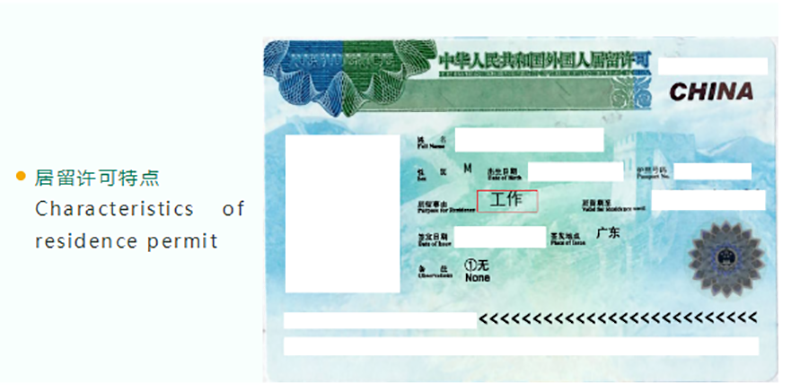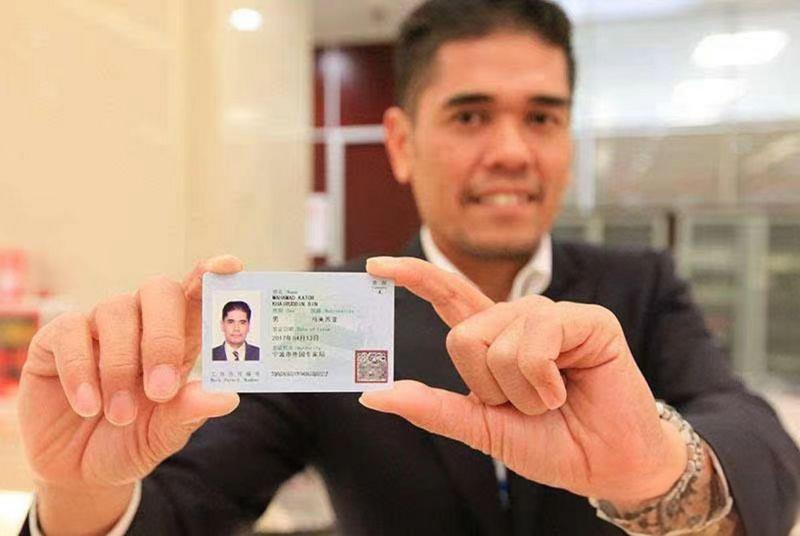After the further opening of the country, the employment needs of domestic enterprises have become more diversified, and the number of foreign employees coming to China is increasing. For enterprises that have not hired foreign employees, it is necessary to understand the relevant laws and regulations of the enterprise and foreign employment in advance. At the same time, foreigners also need to understand China’s employment policies and systems to avoid illegal and irregular work.

We have collected high-frequency questions for enterprises and foreigners to further understand. When planning to apply for a work permit, if you are worried about improper operation affecting your visa, you can consult us for solutions.
1. What documents are required for foreigners to work in China?
Work permit: Foreigners working in China need to obtain a work permit, which is issued by the local foreign trade bureau to confirm the legal qualifications of foreigners to engage in the profession in China.
Residence permit: After obtaining the work permit, you also need to apply for a work related residence permit from the local immigration management department. The validity period of a residence permit is usually the same as the validity period of a work visa.
It should be noted that obtaining the above documents requires a large amount of notarization, translation, authentication and other documents, which requires a certain amount of time and effort.
Notes:
If the work permit is invalid, invalid, expired, or if the unit indicated on the employment permit is inconsistent with the actual unit providing labor, foreign employees holding the work permit will be considered as illegal employment.
2.Is the labor contract signed between the enterprise and foreigners without a work permit valid?
Invalid! If a foreigner signs a labor contract with an employer within China without obtaining a Foreigner Work Permit, it cannot be deemed that there is a labor relationship between the two parties. If a dispute arises between the two parties, it must be handled according to the labor relationship.
Article 14 of the Interpretation of the Supreme People’s Court on Several Issues Concerning the Application of Law in the Trial of Labor Dispute Cases (4) states that foreigners and stateless persons sign labor contracts with employers in China without obtaining employment documents in accordance with the law, and residents of the Hong Kong Special Administrative Region, Macau Special Administrative Region, and Taiwan sign labor contracts with mainland employers without obtaining employment documents in accordance with the law, The people’s court shall not support the request of the parties to confirm the existence of a labor relationship with the employer.
Foreigners who hold a Foreign Work Permit and establish employment relationships with employers within China can be recognized as labor relations.
3.Can foreigners claim Financial compensation from employers if they have not applied for a work permit?
Generally not possible. According to Article 5 of the Regulations on the Administration of Foreigners’ Employment in China, “the employing unit must apply for an employment permit for the foreigner, and can only employ the foreigner after obtaining the Employment Permit for Foreigners of the China (hereinafter referred to as the” Permit “).”.
Foreigners who provide labor activities in China, although the company did not purchase social insurance for them, because they did not apply for an employment certificate, it is illegal to obtain employment. It is not supported to claim Financial compensation according to law.
4.Do companies need to pay social security for foreign employees?
Article 97 of the Social Insurance Law stipulates: “Foreigners who are employed within the territory of China shall participate in social insurance in accordance with the provisions of this Law.” When foreign employees terminate their employment relationship and cancel their employment certificates, they usually leave China. In addition, foreigners may have already paid corresponding social insurance in their home country, which may result in double payment situations, If foreigners working in China are strictly required to pay social insurance in accordance with Chinese laws, it may cause unnecessary burdens for employers and foreign employees. China has currently waived specific social insurance payment obligations with countries such as Germany, Japan, South Korea, and Canada through bilateral agreements.
For foreigners who have paid social insurance in China but have not yet met the conditions for receiving pension and leave the country, Article 5 of the “Interim Measures for Foreigners Employed in China to Participate in Social Insurance” stipulates that if they leave the country before reaching the prescribed age for receiving pension, their individual social insurance accounts shall be retained. For those who come to China for employment again, the payment years shall be calculated cumulatively; If the individual applies in writing to terminate their social insurance relationship, they can also pay the amount stored in their personal social insurance account to the individual in one lump sum.
5.Can foreign employees claim to have signed an open-ended labor contract with the company?
Look at the region. In practice, some courts, such as those in Shanghai, Sichuan and Hainan, according to the Regulations on the Administration of Foreigners’ Employment in China, the stipulation that the maximum term of a foreigner’s labor contract should not exceed five years is a mandatory norm, and the terms agreed by both parties without a fixed term are invalid. At the same time, some courts, such as those in Beijing and Nanjing, according to Article 14 of the Labor Contract Law of the Labour Contract Law of the People’s Republic of China, concluded that the employer and the employee have entered into a non fixed term labor contract.








